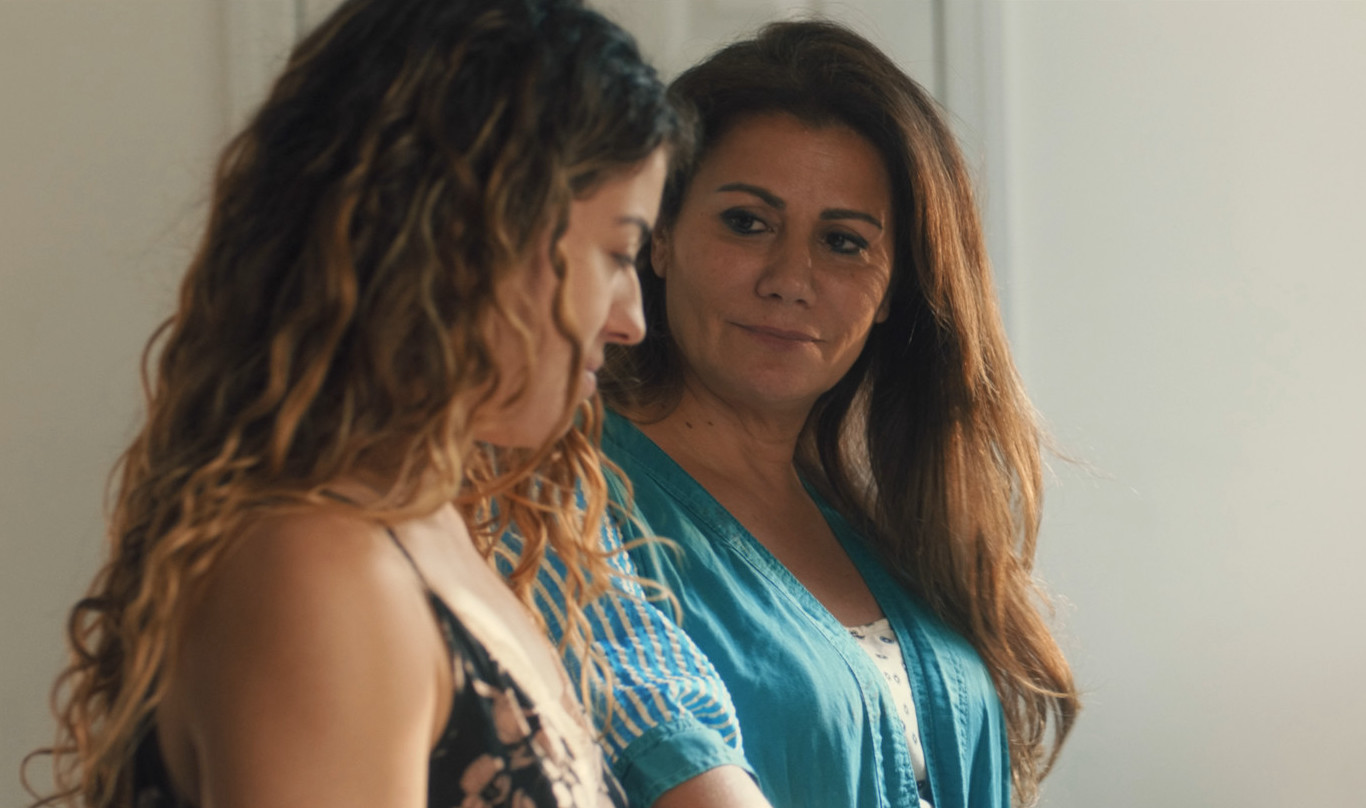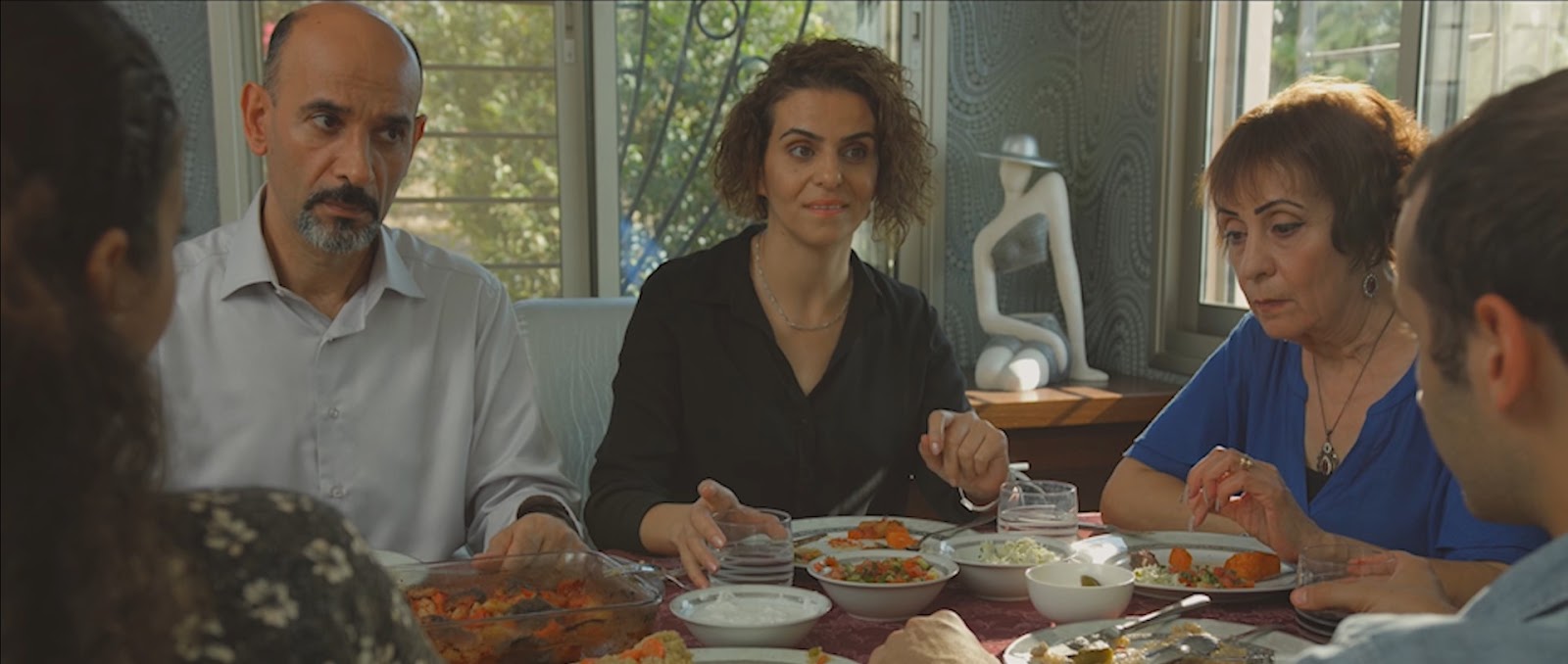In theaters: November 2–9; Virtual: November 10–13; visit: bostonjfilm.org for the full program
Attachment, dir. Gabriel Bier Gislason, 2022, 105 min.
November 5, 9:15 pm, Brattle Theatre
Boston Premiere
Attachment is a modern-day thriller/horror film with no violence or blood, just fear of the supernatural lurking in the atmosphere. The story involves Jewish mysticism—what non-mystics would call superstitions to ward off demons and evil. The only way to talk about the film risks a spoiler, for the plot’s clues are so subtly woven into the action as to be missed. Be forewarned: unless you keep an unswerving eye on the camera’s focus and listen acutely to the dialogues’ subtext, puzzlement may result. And the epilogue’s playful twist only adds to audience uncertainty. At the same time, it is this very eeriness about the presence of invisible evil that disturbs us in a marvelous way.
The film moves briskly and features three female protagonists, two of them—Maja and Chana—antagonists for the love of the third, Leah. Chana is Leah’s Jewish mother and Maya is Leah’s non-Jewish lover. A fourth character, Lev, Chana’s Orthodox brother-in-law and religious bookstore owner, is a scholar of the Kabbalah—Jewish mysticism that has, as Lev tells us, “the power to unlock the secrets of the universe and ward off evil.” Chana also knows and practices the Kabbalah’s esoteric rituals that include amulets, heaps of salt in the corners of rooms, candles lit at night, and soup concoctions made with chants to activate their magical powers—incantations like those of the witches in Macbeth, their cauldron bubbling with portentous vapors. We meet shopkeepers in London’s Orthodox neighborhood, home to Leah, Chana, and Lev. These vendors also know the mystic traditions and secretly sell Chana the sacred ingredients she needs for the rituals she performs for Leah, her lovely and charismatic daughter.
The film begins with Leah, a graduate student, meeting Maja during a research trip to Denmark. The two fall in love and return to Leah’s London flat, located above her mother Chana’s flat. The plot then takes off with sinister and suspenseful sounds and inexplicable happenings. Lev shows Maja a book from his shop about “the other side.” He turns the pages, pointing out supernatural beings who are evil, such as the Dybbuk, the tortured soul of a dead person who possesses a living person’s body, causing that person derangement and death—unless the Dybbuk can be expelled. Secret rituals can attempt to exorcise a Dybbuk, Lev tells Maja, but they are life threatening to those who perform them, and “nowadays out of favor, deemed dangerous. The Talmud forbids black magic and sorcery.”
Leah’s increasingly strange condition and her mother’s even stranger behavior, feeds the suspense and mystery of the movie. Catastrophe looms in the atmosphere. Uncertainty rivets each ticking minute: Who is good, who is evil? Is Chana a witch? Is Lev dangerous? What is going on that we do not yet understand? And can Maja—the only innocent one in this scary coterie—save her beloved from the invisible evil clutches moving in at an ever faster rate? Attachment offers viewers a fabulous, bated-breath film journey.
Sofie Grabol (Chana) deserves special note for her role as Leah’s mother. She fully embodies Chana’s deep psychic pain for the life of her daughter. Every detail of Chana’s internal, turmoiled state brims in her facial expressions, her movements and speech. It is as if she herself is possessed by a terrible power slowly destroying her. Attachment eschews back story—we learn little about the characters before the film’s present moment, and that is all we need to be in the grip of this thrilling tale.
For those interested in past Dybbuk films, check out my review of two that screened in Boston in 2018 and may be available for streaming: gailspilsbury.blogspot.com/2018/04.
Dybbuk etching by Ephraim Moses Lillien (1874–1925).
Contributed to the Boston City Paper, by Gail Spilsbury, www.bergamotbooks.com










